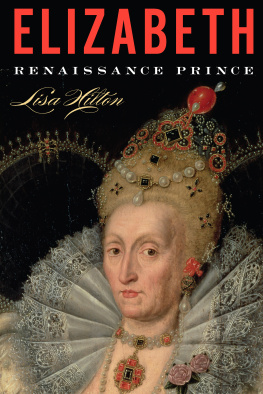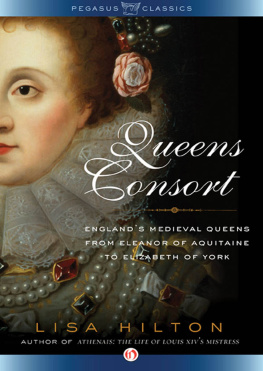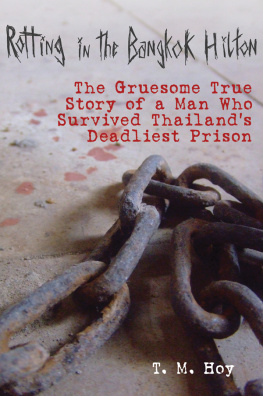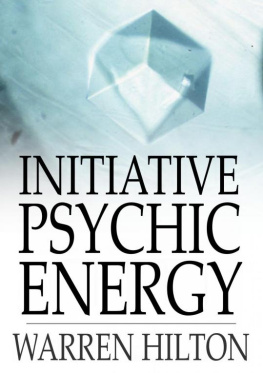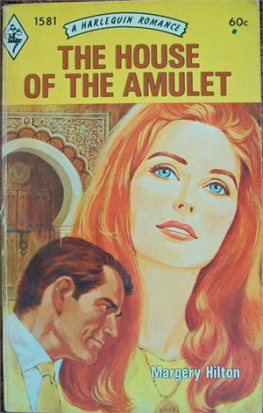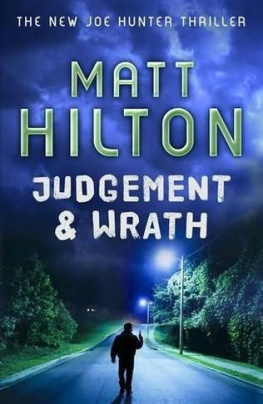Hilton - Mad, Bad, and Dangerous People?
Here you can read online Hilton - Mad, Bad, and Dangerous People? full text of the book (entire story) in english for free. Download pdf and epub, get meaning, cover and reviews about this ebook. year: 2006, publisher: Oxford University Press USA - OSO, genre: Art. Description of the work, (preface) as well as reviews are available. Best literature library LitArk.com created for fans of good reading and offers a wide selection of genres:
Romance novel
Science fiction
Adventure
Detective
Science
History
Home and family
Prose
Art
Politics
Computer
Non-fiction
Religion
Business
Children
Humor
Choose a favorite category and find really read worthwhile books. Enjoy immersion in the world of imagination, feel the emotions of the characters or learn something new for yourself, make an fascinating discovery.

Mad, Bad, and Dangerous People?: summary, description and annotation
We offer to read an annotation, description, summary or preface (depends on what the author of the book "Mad, Bad, and Dangerous People?" wrote himself). If you haven't found the necessary information about the book — write in the comments, we will try to find it.
Mad, Bad, and Dangerous People? — read online for free the complete book (whole text) full work
Below is the text of the book, divided by pages. System saving the place of the last page read, allows you to conveniently read the book "Mad, Bad, and Dangerous People?" online for free, without having to search again every time where you left off. Put a bookmark, and you can go to the page where you finished reading at any time.
Font size:
Interval:
Bookmark:
THE NEW OXFORD HISTORY OF ENGLAND
General Editor J. M. ROBERTS
ENGLAND
17831846
BOYD HILTON


Great Clarendon Street, Oxford OX2 6DP
Oxford University Press is a department of the University of Oxford.
It furthers the Universitys objective of excellence in research, scholarship,
and education by publishing worldwide in
Oxford New York
Auckland Cape Town Dar es Salaam Hong Kong Karachi
Kuala Lumpur Madrid Melbourne Mexico City Nairobi
New Delhi Shanghai Taipei Toronto
With offices in
Argentina Austria Brazil Chile Czech Republic France Greece
Guatemala Hungary Italy Japan Poland Portugal Singapore
South Korea Switzerland Thailand Turkey Ukraine Vietnam
Oxford is a registered trade mark of Oxford University Press
in the UK and in certain other countries
Published in the United States
by Oxford University Press Inc., New York
Boyd Hilton 2006
The moral rights of the author have been asserted
Database right Oxford University Press (maker)
First published 2006
All rights reserved. No part of this publication may be reproduced,
stored in a retrieval system, or transmitted, in any form or by any means,
without the prior permission in writing of Oxford University Press,
or as expressly permitted by law, or under terms agreed with the appropriate
reprographics rights organization. Enquiries concerning reproduction
outside the scope of the above should be sent to the Rights Department,
Oxford University Press, at the address above
You must not circulate this book in any other binding or cover
and you must impose the same condition on any acquirer
British Library Cataloguing in Publication Data
Data available
Library of Congress Cataloging in Publication Data
Data available
Typeset by Newgen Imaging Systems (P) Ltd., Chennai, India
Printed in Great Britain
on acidfree paper by
Biddles Ltd., Kings Lynn, Norfolk
ISBN 0198228309 9780198228301
1 3 5 7 9 10 8 6 4 2
FOR
MARY
TOM ELIZA ZO
The first volume of Sir George Clarks Oxford History of England was published in 1934. Undertaking the General Editorship of a New Oxford History of England fortyfive years later it was hard not to feel overshadowed by its powerful influence and well-deserved status. Some of Clarks volumes (his own among them) were brilliant individual achievements, hard to rival and impossible to match. Of course, he and his readers shared a broad sense of the purpose and direction of such books. His successor can no longer be sure of doing that. The buildingblocks of the story, its reasonable and meaningful demarcations and divisions, the continuities and discontinuities, the priorities of different varieties of history, the place of narrativeall these things are now much harder to agree upon. We now know much more about many things, and think about what we know in different ways. It is not surprising that historians now sometimes seem unsure about the audience to which their scholarship and writing are addressed.
In the end, authors should be left to write their own books. Nonetheless, the New Oxford History of England is intended to be more than a collection of discrete or idiosyncratic histories in chronological order. Its aim is to give an account of the development of our country in time. It is hard to treat that development as just the history which unfolds within the precise boundaries of England, and a mistake to suggest that this implies a neglect of the histories of the Scots, Irish, and Welsh. Yet the institutional core of the story which runs from AngloSaxon times to our own is the story of a state structure built round the English monarchy and its effective successor, the Crown in Parliament, and that provides the only continuous articulation of the history of the peoples we today call British. It follows that there must be uneven, and sometimes discontinuous, treatment of much of the history of those peoples. The state story nevertheless, is an intelligible thread and to me appears still to justify both the title of this series and that of its predecessor.
If the attention given to the other kingdoms and the principality of Wales must reflect in this series their changing relationship to that central theme, this is not only way in which the emphasis of individual volumes will be different. Each author has been asked to bring forward what he or she sees as the most important topics explaining the history under study, taking account of the present state of historical knowledge, drawing attention to areas of dispute and to matters on which final judgement is at present difficult (or, perhaps, impossible) and not merely recapitulating what has recently been the fashionable centre of professional debate. But each volume, allowing for its special approach and proportions, must also provide a comprehensive account, in which politics is always likely to be prominent. Volumes have to be demarcated chronologically but continuities must not be obscured; vestigially or not, copyhold survived into the 1920s and the AngloSaxon shires until the 1970s (some of which were to be resurrected in the 1990s, too). Any single volume should be an entrypoint to the understanding of processes only slowly unfolding, sometimes across centuries. My hope is that in the end we shall have, as the outcome, a set of standard and authoritative histories, embodying the scholarship of generation, and not mere compendia in which the determinants are lost to sight among the detail.
J. M. ROBERTS
The pen might be mightier than the sword, but it is not always as quick. This book has taken a third as long to write as the events that it describes took to happen, or, to put it another way, about as long as the Great War that led to the creation and then destruction of a French imperium throughout most of continental Europe. During this books laboured gestation I have incurred so many debts to colleagues, students, and others that it is impossible to mention all of them by name. My first draft of a thankyou list was so long as almost to devalue the quality of the thanks on offer, besides which the longer the list the greater the solecism of inadvertently dropping someone off it. So I hope that my legion of intellectual creditors will understand if I pare this section down to bare essentials.
I must start with five people who are no longer alive to receive my thanks. Angus Macintyre was my first mentor. Anyone lucky enough to have been tutored or supervised by Angus will know how wonderfully inspiring and uplifting he could be. Bob Robson did not do uplift exactly, but he had an encyclopedic knowledge of eighteenth- and nineteenthcentury Britain, and was endlessly solicitous as I started on my long task. Colin Matthew was not so much solicitous as chivvying, but for thirty years I regarded him as my alter ego, the person with whom I shared all my thoughts about the nineteenth century, a period we gossiped about as though its inhabitants were alive and kicking among us. Arguably John Roberts, the general editor of this series, should have chivvied harder in the earlier stages. Like some other contributors, I feel guilty about the time I took to bring things to the boil. But no one could have asked for a wiser, shrewder, or kinder editor when at last the prose began to flow. This manuscript must have been almost the last thing John read. Perhaps the most moving letter I have ever received is the stoical, encouraging, and wholly unselfregarding one in which he informed me, two weeks before his death in 2003, that he physically could not read any further. A very recent loss is that of Maurice Cowling, a mesmerising colleague, sometimes brutal and alarming but always funny and endearing.
Next pageFont size:
Interval:
Bookmark:
Similar books «Mad, Bad, and Dangerous People?»
Look at similar books to Mad, Bad, and Dangerous People?. We have selected literature similar in name and meaning in the hope of providing readers with more options to find new, interesting, not yet read works.
Discussion, reviews of the book Mad, Bad, and Dangerous People? and just readers' own opinions. Leave your comments, write what you think about the work, its meaning or the main characters. Specify what exactly you liked and what you didn't like, and why you think so.



